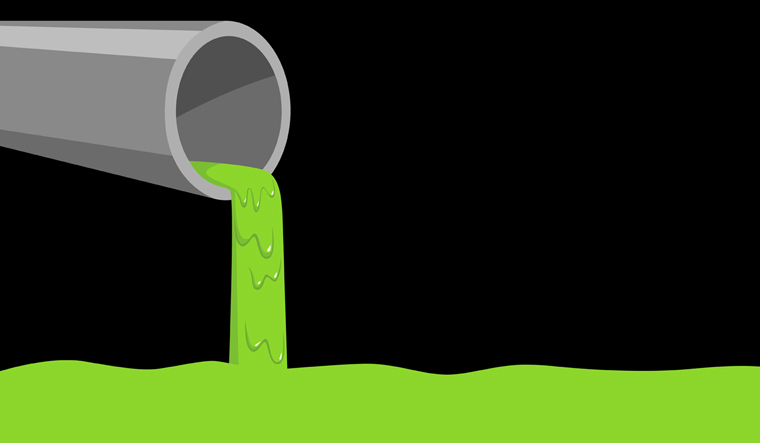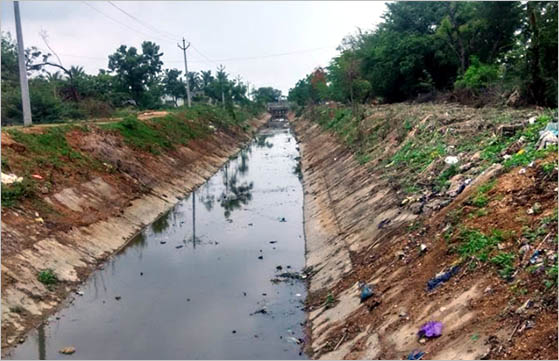Ingenious Industrial Wastewater Treatment Solutions: Securing the Setting
Ingenious Industrial Wastewater Treatment Solutions: Securing the Setting
Blog Article
Comprehending the Comprehensive Refine of Liquid Garbage Disposal: Ideal Practices and Environmental Influence Considerations
The management of fluid waste disposal is a diverse issue that calls for a comprehensive understanding of various best methods and their associated ecological influences. From the types of fluid waste generated to the techniques used for collection, treatment, and final disposal, each step plays a critical function in protecting ecosystems and public health.
Types of Liquid Waste
Recognizing the different kinds of liquid waste is important for effective administration and disposal practices. Liquid waste can be generally classified into several kinds, each calling for unique handling and therapy approaches.
Industrial fluid waste typically has harmful products, consisting of hefty metals, solvents, and chemicals, generated throughout producing processes. These wastes necessitate rigorous regulatory compliance to secure human health and the atmosphere. Domestic liquid waste largely describes wastewater created from households, including sewer and greywater, which, although less poisonous, can still position significant dangers if poorly managed.
Agricultural fluid waste, including drainage from farms, typically consists of plant foods and pesticides that can cause ecological deterioration otherwise treated adequately. Clinical liquid waste, created from medical care centers, includes contaminated liquids such as bodily liquids and chemicals, calling for specialized disposal approaches to stop infection and ecological contamination.
Last but not least, oil and oil waste, usually generated by dining establishments and auto markets, can trigger severe blockages in sewer systems otherwise taken care of appropriately. Recognizing these categories helps with targeted approaches for treatment, conformity with guidelines, and efficient disposal methods, inevitably promoting ecological sustainability and public health safety.

Collection Techniques
Effective collection techniques are critical for the appropriate administration of fluid waste, making sure that it is gathered securely and successfully before therapy or disposal. Various techniques are employed relying on the kind of fluid waste created, the quantity, and the details characteristics of the waste.
One usual method is the use of committed collection containers or sumps, which are developed to record liquid waste at the resource. These systems usually incorporate pumps that help with the transfer of waste to bigger storage space containers or treatment centers. In addition, mobile collection systems outfitted with vacuum technology are utilized in situations where waste is produced periodically or in hard-to-reach places.
For industrial setups, closed-loop systems can efficiently minimize leaks and spills, allowing for the recuperation and reuse of liquid waste. It is additionally vital to educate employees on proper collection methods to mitigate threats connected with dangerous substances.
Moreover, applying routine upkeep schedules for collection equipment ensures optimal performance and safety. The integration of innovative tracking systems can boost collection effectiveness by supplying real-time information on waste degrees and possible hazards. On the whole, effective collection methods are fundamental to lasting fluid waste management practices.
Therapy Procedures
Treatment procedures play a crucial duty in the monitoring of fluid waste, changing possibly unsafe products right into secure effluents or reusable resources - liquid waste disposal. These procedures can be broadly classified right into physical, chemical, and biological techniques, each tailored to deal with specific impurities present in the waste stream
Physical treatment methods, such as sedimentation and filtering, work by removing suspended solids and particle issue. These methods are frequently the very first step in the therapy chain, properly lowering the tons on subsequent processes. Chemical treatments entail making use of reagents to counteract dangerous compounds, precipitate hefty metals, or oxidize natural contaminants, thus enhancing the safety and security of the effluent.
Organic treatment processes, consisting of turned on sludge systems and anaerobic digestion, maximize the all-natural capacities of bacteria to weaken raw material. These approaches are especially reliable for wastewater including eco-friendly pollutants. Advanced therapy modern technologies, such as membrane filtering and progressed oxidation processes, are progressively utilized to attain higher levels of purification.
Including a mix of these treatment techniques not just news ensures compliance with regulative criteria but likewise advertises ecological sustainability by recovering important sources from fluid waste.
Disposal Options
Just how can companies guarantee the liable and secure disposal of liquid waste? Effective disposal choices are vital for guarding public health and the setting. The key methods include land disposal, treatment, and incineration adhered to by discharge into metropolitan wastewater systems.
Land disposal entails the mindful control of fluid waste in marked land fills, ensuring that it does not seep right into bordering dirt or water. Incineration, on the various other hand, subjects liquid waste to high temperatures, converting it into ash and gases, which require correct purification to imp source decrease exhausts. This approach appropriates for harmful wastes that can not be dealt with with standard ways.
In situations where liquid waste can be treated, organizations might opt for chemical or organic therapy procedures to counteract harmful parts before discharging the dealt with effluent right into local systems. This path generally aligns with governing demands, guaranteeing that the effluent meets safety and security criteria.
Inevitably, organizations must perform detailed evaluations of each disposal option to establish its feasibility, thinking about factors such as waste make-up, regulative compliance, and possible dangers to health and the setting. By choosing appropriate disposal approaches, companies can add to an accountable waste management approach.
Environmental Influence
The ecological impact of liquid waste disposal is a critical consideration for companies looking for to lessen their ecological footprint. In addition, the discharge of neglected or improperly dealt with waste right into surface area waters can result in eutrophication, leading to oxygen depletion and the subsequent death of fish and other organisms.

To reduce these effects, companies have to adopt best techniques such as implementing rigorous waste treatment processes, advertising recycling and reuse, and sticking to regulatory requirements. By taking a proactive method to fluid waste administration, entities can considerably decrease their environmental impact while sustaining sustainable development objectives. Ultimately, a detailed understanding of the ecological impacts associated with fluid waste disposal is essential for notified decision-making and accountable stewardship of natural resources.
Conclusion
Effective administration of liquid waste is vital for protecting ecological stability and public health. By adopting ideal techniques in disposal, treatment, and collection, alongside adherence to governing standards, the potential for dangerous contamination of communities can be significantly minimized. Continual innovations in innovation and processes add to sustainable waste administration initiatives. Inevitably, a comprehensive understanding of liquid waste disposal not just minimizes environmental influences but additionally promotes a commitment to accountable resource administration and ecological stewardship.
The monitoring of liquid waste disposal is a complex problem that requires an extensive understanding of numerous ideal techniques and their connected environmental influences. From the types of liquid waste produced to the techniques used for collection, therapy, and final disposal, each step plays a vital duty in protecting ecological communities and public health.The ecological impact of liquid waste disposal is an important factor to consider for companies looking for to reduce their ecological impact. Inevitably, a detailed understanding of the ecological influences linked with fluid waste disposal is essential for educated decision-making and responsible stewardship of all-natural sources.
Ultimately, an extensive understanding of fluid waste disposal not just mitigates ecological influences yet likewise promotes a commitment to liable source administration and environmental stewardship.
Report this page